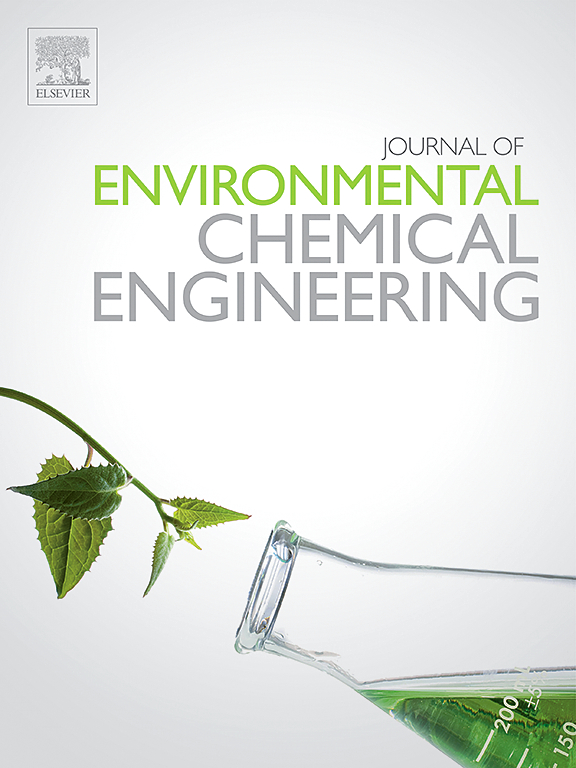A review of antibiotic resistance generation and control in wastewater and solid waste system
IF 7.4
2区 工程技术
Q1 ENGINEERING, CHEMICAL
引用次数: 0
Abstract
The escalating prevalence and genetic diversity of antimicrobial resistance (AMR) pose significant threats to global ecosystems and public health, driven by their rapid dissemination across multiple environmental media. This review presents a comprehensive analysis of AMR transmission and surveillance approaches, while evaluating contemporary strategies for mitigating resistance spread within wastewater and solid waste treatment systems. Key interventions include source reduction through antibiotic stewardship programs and the development of alternative therapeutic approaches. At the cellular level, bacterial mutation rates can be suppressed through oxidative stress alleviation, efflux pump inhibition, and quorum sensing disruption. Horizontal gene transfer of AMR can be constrained through advanced oxidation processes for resistance gene degradation, physical immobilization techniques such as complexation, adsorption, precipitation, and ion exchange, as well as modulation of cell membrane permeability. Emerging biological control methods, particularly bacteriophage therapy and predatory bacterial applications, show considerable promise for AMR mitigation. By synthesizing these multidisciplinary strategies, this review offers critical insights for developing integrated approaches to combat the global spread of antibiotic resistance.
废水和固体废物系统中抗生素耐药性的产生及控制研究进展
抗菌素耐药性(AMR)在多种环境媒体中的迅速传播,其流行率和遗传多样性不断上升,对全球生态系统和公共卫生构成重大威胁。本综述全面分析了抗菌素耐药性的传播和监测方法,同时评估了缓解废水和固体废物处理系统中耐药性传播的当代战略。主要干预措施包括通过抗生素管理计划和发展替代治疗方法来减少来源。在细胞水平上,细菌突变率可以通过氧化应激缓解、外排泵抑制和群体感应中断来抑制。AMR的水平基因转移可以通过高级氧化过程来抑制抗性基因降解,物理固定技术,如络合,吸附,沉淀和离子交换,以及细胞膜通透性的调节。新兴的生物防治方法,特别是噬菌体治疗和捕食性细菌的应用,显示出减轻抗菌素耐药性的巨大希望。通过综合这些多学科策略,本综述为开发对抗抗生素耐药性全球传播的综合方法提供了重要见解。
本文章由计算机程序翻译,如有差异,请以英文原文为准。
求助全文
约1分钟内获得全文
求助全文
来源期刊

Journal of Environmental Chemical Engineering
Environmental Science-Pollution
CiteScore
11.40
自引率
6.50%
发文量
2017
审稿时长
27 days
期刊介绍:
The Journal of Environmental Chemical Engineering (JECE) serves as a platform for the dissemination of original and innovative research focusing on the advancement of environmentally-friendly, sustainable technologies. JECE emphasizes the transition towards a carbon-neutral circular economy and a self-sufficient bio-based economy. Topics covered include soil, water, wastewater, and air decontamination; pollution monitoring, prevention, and control; advanced analytics, sensors, impact and risk assessment methodologies in environmental chemical engineering; resource recovery (water, nutrients, materials, energy); industrial ecology; valorization of waste streams; waste management (including e-waste); climate-water-energy-food nexus; novel materials for environmental, chemical, and energy applications; sustainability and environmental safety; water digitalization, water data science, and machine learning; process integration and intensification; recent developments in green chemistry for synthesis, catalysis, and energy; and original research on contaminants of emerging concern, persistent chemicals, and priority substances, including microplastics, nanoplastics, nanomaterials, micropollutants, antimicrobial resistance genes, and emerging pathogens (viruses, bacteria, parasites) of environmental significance.
 求助内容:
求助内容: 应助结果提醒方式:
应助结果提醒方式:


